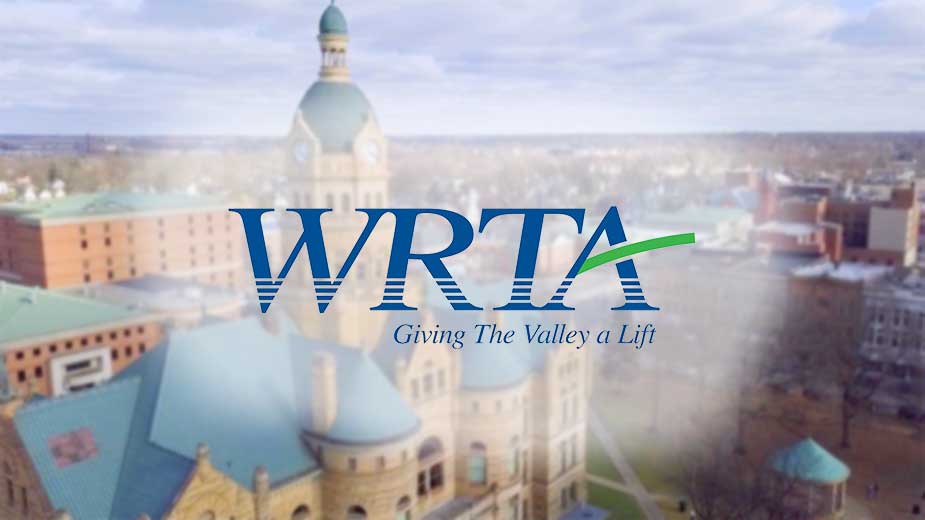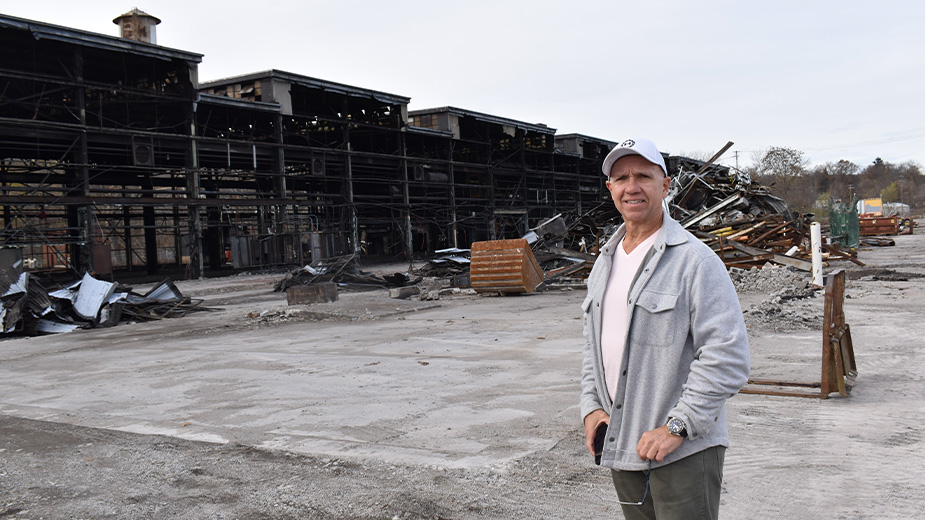WRTA to Restart Warren Routes, Extend Service to Lordstown
WARREN, Ohio – The Western Reserve Transit Authority in December will restart public transportation services for Trumbull County that includes five routes in Warren, one of which extends to Ulitum Cells LLC’s new battery plant under construction in Lordstown.
“We’re going to make some modifications with a run to Lordstown that will connect with our Youngstown service,” said Dean Harris, executive director of WRTA.
The new route will originate in Warren and stop at the TJX HomeGoods Distribution Center in Lordstown, Harris said. Then, the route would extend north to the Ultium Cells plant along state Route 45 in the village.
WRTA currently operates a route from Youngstown to North Jackson and the TJX center on Bailey Road. The Youngstown line could connect with the Warren line to Ultium, he said.
“We’ll have more details in a couple of weeks,” he said.
Additional routes in Warren include Elm Road, Park Avenue, Mahoning Avenue and a northwest route, Harris said.
WRTA received a $560,000 grant from the Ohio Department of Transportation to fund the service for a year. Service would begin Dec. 6 and last until the end of November 2022.
The transit authority’s fixed-route service to Warren stopped last week when funding for the program expired, Harris said.
WRTA also operates an additional route, called the Warren Express, which was not affected when the funding expired.
“It will be down for about three months,” Harris said.
The announcement comes as Trumbull County wrestles with solutions regarding public transportation, an issue that’s proven politically divisive over the last several months.
On Wednesday, Trumbull County Commissioner Frank Fuda convened representatives from the mayor’s offices of the county’s major cities in what he termed an “informational meeting” regarding transportation services in the county.
Fuda had balked at an earlier proposal by WRTA to extend fixed route services into Trumbull, saying that a one-quarter percent sales tax needed to fund the new routes would cost about $6 million annually.
“WRTA offered us a big contract if we would basically give them $6 million a year,” Fuda said at the meeting. “We have to make sure that we’re able to serve $6 million worth of customers. Everything we do in the county is a business and transportation is part of that business.”
Fuda said the meeting was called in order to start a discussion about how to provide people with the best mass transit options for the county.
“Is there a better way than paying $6 million a year to WRTA?” he asked. “Are we being cost wise?”
Warren resident Karen McGaha, who once lived in Youngstown and used the WRTA system extensively, said that public transit is imperative for those who desperately need transportation for work or medical appointments.
“How about everyday residents who need to have transportation to go to work?” she said. “If you bring WRTA into Trumbull County, it would be a great asset.”
Lordstown, she said, is a hot spot for new jobs at TJX or Ultium Cells and those looking to fill these positions need transportation. “They need something to rely on,” she said, in case their vehicle breaks down or they have no other means of getting to their jobs.
“That’s why we’re having these meetings,” Fuda replied. “We’re looking for the most cost-efficient way to provide public transportation.”
Trumbull County Commissioner Nikki Frenchko, who supports Trumbull County joining WRTA, said there is an inherent connection between economic development and adequate public transportation.
“One of the first things that a site development firm looks for is whether transportation runs by here,” she said. “That’s going to help for other revenue for Trumbull County. When you’ve got more people working, you’re going to have more people spending [money] here as well.”
Mike Salamone, Trumbull County’s transit director, provided the group with ridership data for transportation services in the county.
Trumbull County Transit today operates senior and disabled transportation services, while Trumbull County Senior Levy supports senior transport.
It costs about $180,000 a year to operate senior and disabled services, Salamone said, and the agency makes about 600 trips a month, or about 7,000 trips a year.
Cortland, for example, served six clients and 43 trips at a cost of $1,200 per month. Warren logged 183 trips at $4,000 a month.
He said that the service has secured funding that will continue service to seniors and people with disabilities that includes a $590,000 grant, plus $450,000 in senior levy money, $200,000 for disabilities transportation, and $49,000 for general public services.
“This should take us to the end of 2022,” he said.
Diane Siskowic-Jurkovic, the county’s senior levy administrator, said it might be necessary to ask voters for a levy increase to cover the cost of transportation services for seniors if no transportation plan is in place.
In August, the senior levy’s transportation service made 2,052 trips, she said. Ridership and costs this year, however, are down because of the COVID-19 pandemic. Unencumbered funds would be used to support the service and a levy increase would be necessary should a plan not be in place by 2025.
Frenchko asked whether joining WRTA would cover these costs and thus remove the need for an increased tax levy in the future.
“We would still need money out of the transportation budget, but it would be far reduced,” Sickowic-Jurkovic said. “We would be able to help other areas of service.”
She said her service provided 940 trips this year. Seventy-one of those were in the Cortland, Bazetta, and Mecca area that served five clients. There were also 109 trips in Girard that served nine people, 60 trips to Hubbard providing service to six riders and 102 trips in Niles serving eight and 262 trips serving 23 residents in Warren.
Also attending the meeting were Warren safety director Eddie Colbert; Mayor Jim Melfi of Girard; Niles Mayor Steven Mientkiewicz; Cortland Mayor Didrie Petrosky; Hubbard Mayor Ben Kyle; and Jennifer Durno, director of transportation for Trumbull County Board of Developmental Disabilities.
Warren’s Colbert said that it’s difficult to rely on these numbers because of the impact of the pandemic.
“Maybe $6 million is too much, maybe it’s not,” he said, referring to the WRTA price tag. “We all know sitting at this table that transportation is a cornerstone to job creation.”
Colbert said it’s imperative that a long-term public transportation plan needs to be adopted, since it’s key to moving forward as a community. “What I’m hoping is that at least we can leave this meeting with an understanding that the major cities in Trumbull County are in agreement that a program has to be established,” he said.
However, Colbert said the responsibility for public transit should be shared across the county, and not a system in which cities are pitted against one another because of ridership levels or costs.
“We need to sit down and come up with what we feel is the right size plan for our county,” he said. “Unfortunately, I don’t believe that we are going to have all of the information we need in order to be able to make that decision.”
Trumbull County Transit’s Salamone said he would like to reconvene a meeting in six months to go over additional numbers that are more reliable. He said a potential method going forward is to better analyze funding based on the number of clients and trips made.
“We can go over the numbers and figure out where we’re at,” he said.
Copyright 2024 The Business Journal, Youngstown, Ohio.



